creativity and art
music
Anti-Establishment, Arab Icons, Arab Politics, Arabic Music, Beirut, Composer, Cultural Resistance, Fairouz, Freedom of Expression, Lebanese History, Lebanese Theatre, Lebanon, Middle East Culture, Music Legend, Playwright, Political Satire, Rahbani Family, Revolutionary Art, Social Criticism, Ziad Rahbani
abo zain
1 Comments
Ziad Rahbani: The Revolutionary Voice of Lebanon
Ziad Rahbani: The Revolutionary Voice of Lebanon
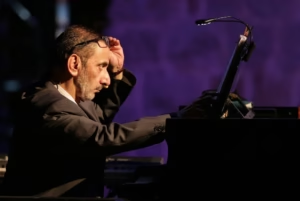
Composer, Playwright, and Political Commentator Who Redefined Arab Culture
1956
Born in Beirut
1973
First Musical
1978
Political Plays
Today
Cultural Icon
In the pantheon of Arab cultural giants, Ziad Rahbani stands as a revolutionary force—a composer who blended jazz with Arabic melodies, a playwright who challenged social norms, and a political commentator who gave voice to the marginalized. This is the story of a man who became the conscience of Lebanon through decades of turmoil and change.
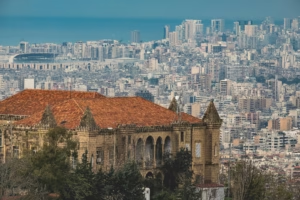
Beirut – The city that shaped Ziad Rahbani’s artistic vision
The Rahbani Dynasty: A Musical Heritage
Born on January 1, 1956, in Beirut, Ziad Rahbani was destined for musical greatness. His father, Assi Rahbani, and uncle, Mansour Rahbani, were the legendary Rahbani Brothers who revolutionized Arabic music and theater. His mother, Fairuz, is arguably the most famous Arab singer of all time. Growing up in this creative environment, Ziad was immersed in music from infancy.
Yet Ziad would chart his own course. While the Rahbani Brothers created romantic, folk-inspired works celebrating Lebanese village life, Ziad would become the voice of urban Beirut—with all its complexity, political tensions, and social challenges.
“I didn’t want to repeat what my parents did. I wanted to talk about the real Beirut, the real Lebanon that people were living in, not the idealized version.” – Ziad Rahbani
Early Musical Education
Ziad began studying piano at age five under the tutelage of Armenian composer Boghos Gelalian. By his teens, he was already composing for his mother, Fairuz. His first major composition for her was “Sa’alouni El Nas” (The People Asked Me) when he was just 16—a song that showcased his innovative blend of Western jazz harmonies with traditional Arabic maqams.
Ziad’s musical journey began at the piano at age 5
The Revolutionary Composer: Blending East and West
Ziad Rahbani’s musical style represents a revolutionary fusion. He introduced jazz, bossa nova, and Western classical elements into Arabic music while respecting its traditions. This innovative approach created a new sound that resonated with younger generations across the Arab world.
Musical Innovations
Rahbani’s compositions feature complex harmonies rarely heard in Arabic music. He frequently used:
- Jazz chord progressions and improvisation
- Bossa nova rhythms alongside traditional Arabic iqa’at
- Counterpoint and complex arrangements
- Blending of traditional instruments (oud, qanun) with modern ones (electric bass, saxophone)
This fusion created a sophisticated urban sound that captured the essence of Beirut—a city at the crossroads of East and West.
50+
Albums Composed
Spanning musical theater, film scores, and studio albums
300+
Songs Written
For Fairuz and other legendary Arab singers
25
Plays Produced
Blending satire, politics, and social commentary
15M+
Records Sold
Making him one of the best-selling Arab artists
The Political Playwright: Theater as Resistance
Ziad Rahbani’s theater work represents some of the most politically daring art to emerge from the Arab world. Beginning with “Nazl al-Surur” (Hotel of Happiness) in 1974, he used the stage to critique social inequality, political corruption, and the Lebanese Civil War (1975-1990).
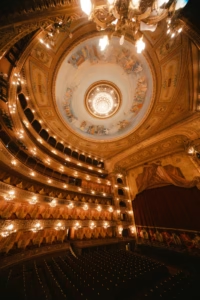
Rahbani used theater to critique Lebanese society and politics
Iconic Plays That Shook Lebanon
“Film Ameriki Tawil” (A Long American Movie) – 1980
This groundbreaking play critiqued American intervention in Lebanon through surreal scenes and biting satire. Its portrayal of the Lebanese Civil War as a movie directed by foreigners was revolutionary.
“Bennesbe La…Bokra Shou?” (So What…What About Tomorrow?) – 1978
Perhaps his most famous play, this work captured the existential crisis of Beirut residents during the civil war. Its dark humor and realistic portrayal of daily life in a warzone made it an instant classic.
Rahbani’s plays were revolutionary not just in content but in form. He broke from traditional Arabic theater by:
- Using Beirut dialect rather than classical Arabic
- Creating complex characters rather than archetypes
- Incorporating multimedia elements
- Blending tragedy and comedy in absurdist ways
“In times of censorship, theater becomes the truth-teller. Ziad Rahbani showed us our own reflection when we were too afraid to look.” – Elias Khoury, Lebanese Novelist
The Political Commentator: Voice of the Left
Beyond his artistic work, Rahbani has been a consistent voice for leftist politics in Lebanon. During the Civil War, his radio show “Bila Niyyit Takassub” (Without Intent to Profit) became essential listening for its critical analysis of the conflict and its players.
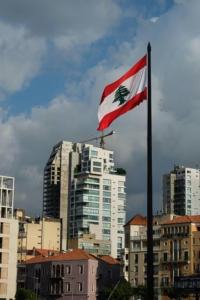
Rahbani’s work has always been deeply connected to Lebanon’s identity
Key Political Positions
Rahbani’s political philosophy combines Arab nationalism with socialist principles:
- Opposition to sectarian political systems
- Critique of Western imperialism in the Middle East
- Support for Palestinian rights
- Advocacy for secular governance
- Critique of capitalist exploitation
“Ziad Rahbani gave voice to the voiceless. When the powerful were dividing Lebanon along sectarian lines, he reminded us of our shared humanity. When foreign powers treated us as pawns, he called out their games. His art was our resistance.” – Hanan al-Shaykh, Lebanese Writer
Musical Legacy: Defining a Generation
Rahbani’s discography spans five decades and multiple genres. His musical evolution mirrors Lebanon’s journey—from the optimism of the early 1970s through the darkness of civil war to the complex postwar period.
Essential Rahbani Albums
“Bennesbe La…Bokra Shou?” (1978)
Soundtrack
Iconic songs from his most famous play, capturing wartime Beirut’s spirit.
“Abu Ali” (1979)
Studio Album
A jazz-infused masterpiece featuring political and social commentary.
“Bi Hal Shaghle” (1983)
Live Album
Recorded during the civil war, showcasing Rahbani’s brilliant piano work.
Personal Life: The Man Behind the Legend
Rahbani’s personal life has been as complex as his art. His marriage to Dalal Karam in the 1970s produced his only son, Assi. Though divorced, they maintained a creative partnership for years.
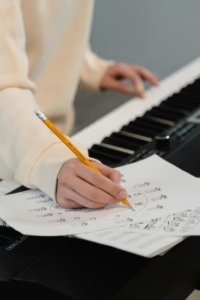
Rahbani’s creative space – where musical magic happens
Rahbani has always guarded his privacy fiercely. He rarely gives interviews, preferring to let his work speak for itself. He divides his time between Beirut and Paris, continuing to compose and occasionally performing intimate concerts.
“An artist should be judged by their work, not their personality. My music and plays are what matter—not who I have dinner with.” – Ziad Rahbani
Legacy and Influence: The Eternal Revolutionary
Ziad Rahbani’s influence extends far beyond Lebanon. He inspired generations of Arab artists to:
- Blend traditional and contemporary musical styles
- Address political and social issues in their art
- Experiment with new theatrical forms
- Challenge artistic conventions
Cultural Impact
Rahbani’s phrases and songs have entered everyday Arabic speech. His play titles became proverbs (“So what…what about tomorrow?”). His characterizations of Beirut’s residents during the civil war created archetypes that Lebanese still reference. More than an artist, Rahbani became the chronicler of modern Lebanon—capturing its beauty, tragedy, resilience, and contradictions.
Musical Influence
Rahbani inspired countless musicians across the Arab world and beyond. His fusion of jazz and Arabic music paved the way for artists like Omar Souleyman, Mashrou’ Leila, and Yasmine Hamdan. Western musicians like Brian Eno and Robert Plant have cited his influence.
Theatrical Legacy
Rahbani transformed Arab theater from formal, classical productions to contemporary, relevant art. Playwrights like Wannous, Al-Hakim, and Khleifi followed his lead in creating politically engaged theater that spoke in local dialects.
The Eternal Voice of Beirut
Ziad Rahbani’s journey reflects the soul of modern Lebanon—a blend of East and West, tradition and innovation, beauty and pain. Through civil war, political turmoil, and social change, his art has remained a constant, challenging Lebanese to confront their realities while dreaming of a better future.
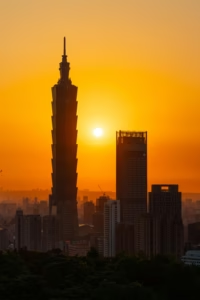
Beirut at twilight – the city that inspired Rahbani’s life work
Now in his late 60s, Rahbani continues to create, though more selectively. His recent works reflect on memory, aging, and Lebanon’s unfinished revolution. He remains that rare artist whose work is simultaneously popular and profound, entertaining and challenging, deeply Lebanese yet universally human.
“When future historians try to understand late 20th-century Lebanon, they will study Ziad Rahbani’s work. His music and plays capture the soul of a nation in all its complexity.” – Edward Said
Share this content:






